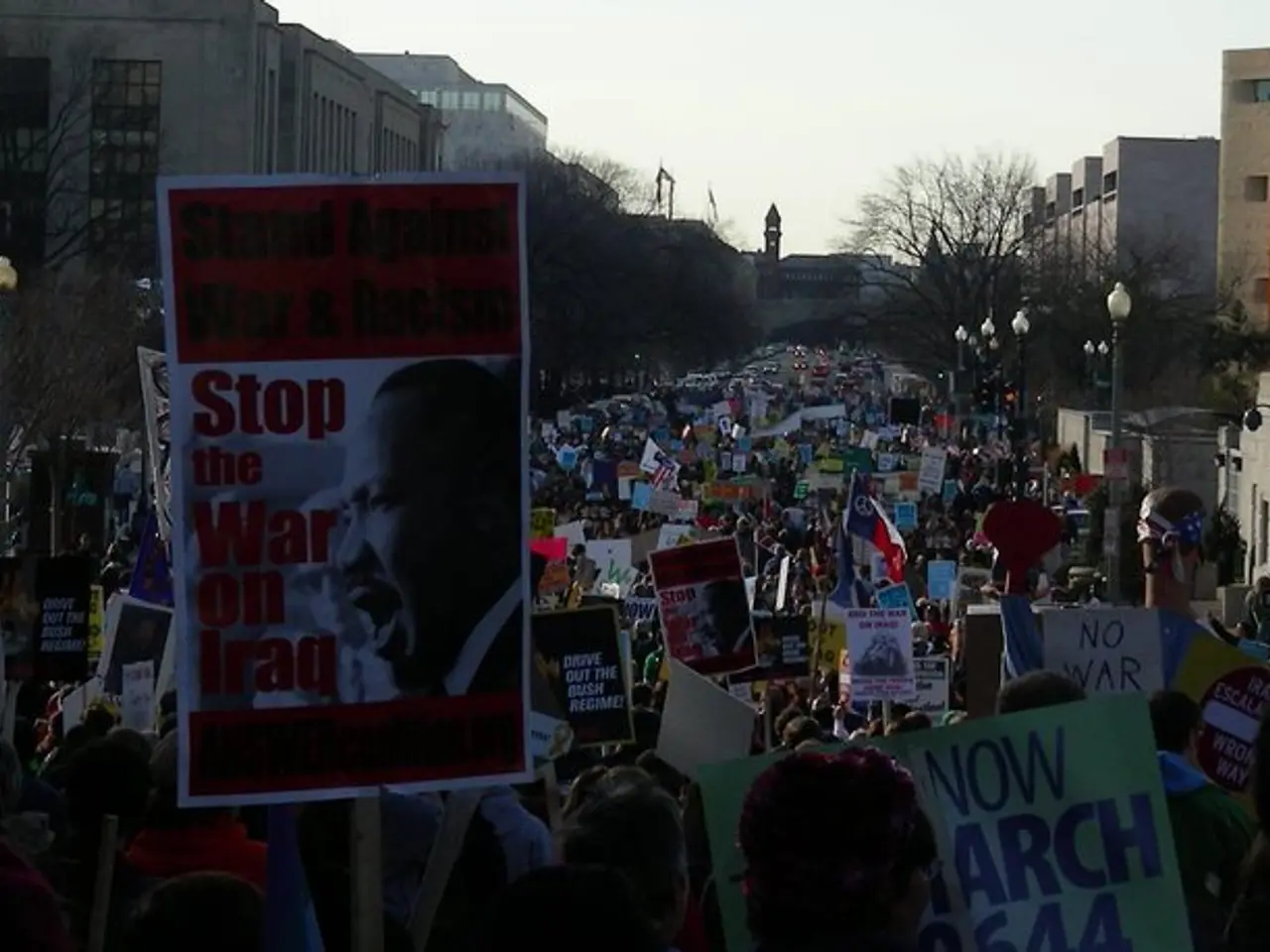UK Government's Restriction on Palestine Action Ignites Fury over Freedom of Expression and Personal Rights
The British government has announced plans to proscribe Palestine Action, a nonviolent protest group, under the UK's anti-terror legislation. The decision follows an incident where activists spray-painted two military planes with red paint at RAF Brize Norton in Oxfordshire.
The proposed ban would criminalize membership and support for Palestine Action, with penalties of up to 14 years in prison and/or significant fines. Activists and civil liberties groups continue to mobilize in opposition to the proposed proscription, emphasizing the dangerous precedent it sets in criminalizing protest and legitimate dissent.
Civil liberties advocate Zoe Gardner argues that labeling Palestine Action as terrorists is a threat to civil liberties, citing historical precedents where similar activist actions were acquitted. Journalist and commentator Owen Jones criticized the government's move, warning it represents a crucial landmark in Britain's descent into naked authoritarianism.
Palestine Action operates within a tradition of nonviolent civil disobedience and direct action, compared to historical movements like the suffragettes. The group itself labeled the government's move as "unhinged," strongly rejecting claims of terrorism. Former Scottish First Minister Humza Yousaf called the planned proscription "a shameful abuse of anti-terror legislation," highlighting the broader implications for democratic rights.
Independent MP Zarah Sultana expressed solidarity with Palestine Action, but was falsely accused of supporting a proscribed group. Jonathan Hall KC, the UK's Independent Reviewer of Terrorism Legislation, clarified that no offences had yet been committed as the proscription does not operate retrospectively.
The broader context, including the UK's history of increasingly stringent protest laws and growing global attention on human rights abuses in Gaza, makes this decision particularly significant. Activists are motivated by opposition to British complicity in violence, particularly related to arms sales to Israel, which activists argue contributes directly to the humanitarian crisis in Gaza.
As Parliament prepares for debate on the draft order, the controversy surrounding Palestine Action's proposed proscription underscores profound concerns about democratic freedoms and the rights of individuals and groups to challenge government complicity in international injustices. The draft order is scheduled to be presented in Parliament on Monday, 30 June, requiring approval from both Houses before coming into force.
Read also:
- Tobacco industry's suggested changes on a legislative modification are disregarded by health journalists
- Uncovering Political Ad Transparency: A Guide to Investigating opponent's Political Advertisements in the Digital Realm
- Elon Musk praises JD Vance's debate performance against Tim Walz
- Right-wing Israeli minister supports controversial plan for West Bank settlement expansion








